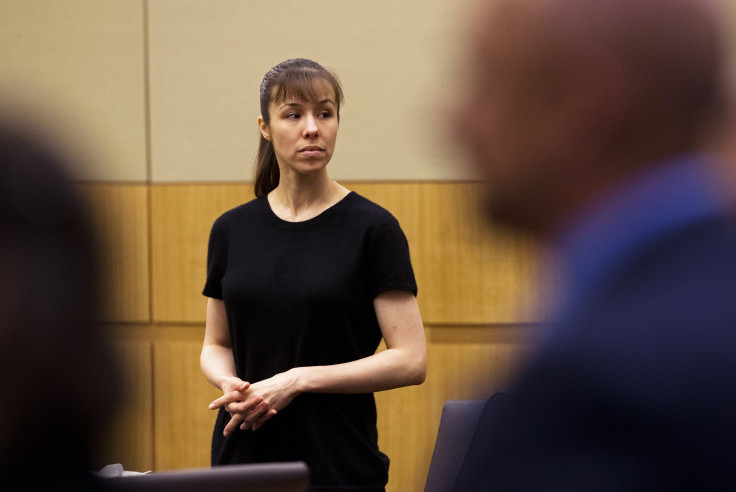When Does The Jodi Arias Trial Resume And Will Prosecutors Seek The Death Penalty?

A jury convicted Jodi Arias on May 8 of first-degree murder in the June 2008 stabbing and shooting death of her lover, Travis Alexander, in his suburban Phoenix home. Two weeks later, the same jury failed to reach a unanimous decision on whether to sentence the former waitress to life in prison or death.
Now, as the world waits to see what fate holds for the convicted killer, prosecutors must decide whether to try one more time for the ultimate punishment or settle on a life sentence.
Arias’ attorneys this week took their case to the court of public opinion as prosecutors consider their options.
"It is solely for them to determine if continuing to pursue a death sentence upon Ms. Arias, who is already facing a mandatory life sentence, is a good and proper use of taxpayer resources," defense attorneys Kirk Nurmi and Jennifer Willmott wrote in a statement provided only to the Arizona Republic.
Jerry Cobb, a spokesman for the Maricopa County Attorney's Office, told reporters Wednesday that, as of right now, no decision had yet been made on how to proceed.
If in any case prosecutors do decide to take the death penalty off the table, a judge would be left to determine whether to sentence Arias to spend her entire life behind bars or give her life with the possibility of release after 25 years.
But if prosecutors do insist on death, Arizona law states that a new panel must be seated to hear arguments and testimony before deliberating once again on a sentence. That process could take several months.
Maricopa County attorney Bill Montgomery said last week that his office would go forward with the trial to convince a new jury to impose the death penalty. However, he did add that, if the defense were to make an offer for resolution in favor of a life sentence, he would have an "ethical obligation" to consider a potential deal.
© Copyright IBTimes 2024. All rights reserved.












